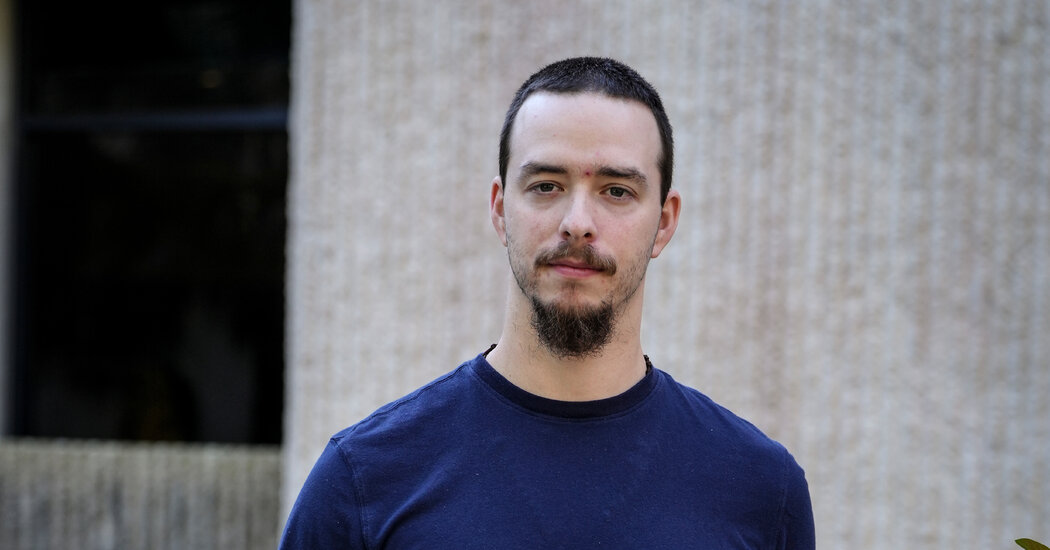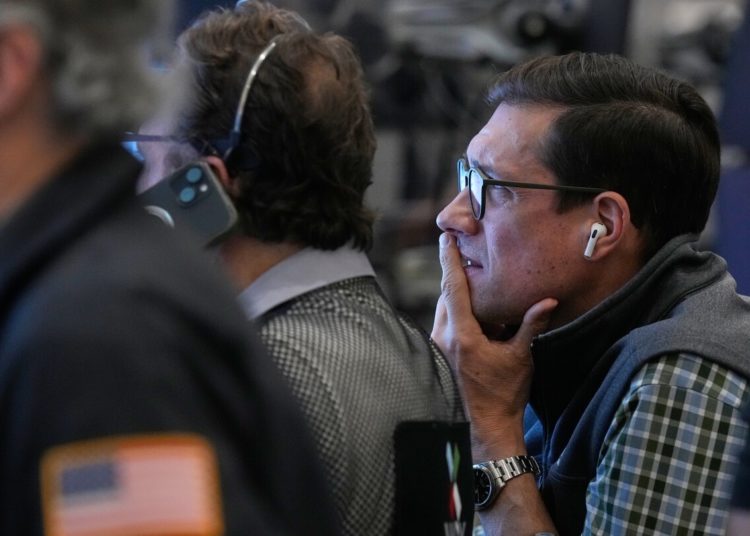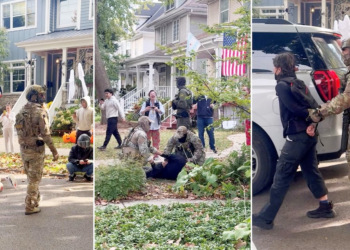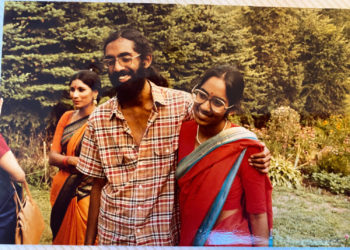Colleges and universities across the country are under extreme pressure, financially and politically. Their students are feeling stressed out, too.
Students are juggling not just homework, but often jobs and families. Artificial intelligence is changing how they study and how they are taught. Seniors worry about being sent into an uncertain world after graduation. On top of everything else, students fret about the political turmoil swirling around them. And some are lonely.
The New York Times traveled to campuses around the country and spoke in phone interviews with over 60 students, including undergraduates and graduate students. At community colleges, public universities and private colleges, students talked about how changes happening in higher education and in society more broadly are affecting them.
Many said there’s a lot to love about college: kindhearted professors and new friends, having access to health care, the thrill of learning every day. Most said they had no doubt their degree would be worth the cost of tuition.
Here’s what is on their minds:
Affording tuition and everything else
A four-year degree can cost hundreds of thousands of dollars, a giant financial investment. Some elite universities have recently advertised beefed up financial aid. The Trump administration is demanding that schools freeze their tuition.
But tuition is only a piece of the affordability puzzle for students. Housing, everyday necessities and the cost of caring for children also weigh on many.
Mr. Martin, a radiology student at Valencia, a community college in Orlando, Fla., said college is expensive and difficult. “I have a baby right now,” he said, “and it’s hard to balance family life with how much you have to study for everything.”
Ameera John, 20, saves money by living with her mother in Brooklyn, but her commute to LaGuardia Community College, in Queens, takes an hour. Sometimes she is late and professors aren’t always sympathetic.
“I’m trying to do my best,” Ms. John said. “It’s really stressful.”
Gabby Smith, 20, studies music at Rollins College, a private liberal arts school in Winter Park, Fla. On top of her coursework, Ms. Smith has an unpaid internship at a recording studio. Right now, she said, “the biggest challenge is definitely financial” and finding time to juggle everything.
“Most of the time, I just go to class, I do my homework and I go right back home,” she said.
Making friends
Some students said they expected college to be fun and social, the way it is in movies or on social media. But Tina Zhang, 19, a junior at the Massachusetts Institute of Technology, said college is not how many of her peers had pictured it.
“I would say this kind of influences people to view college as somewhere where you can really thrive, maybe just go to parties and have a lot of fun, great social life,” she said. “At M.I.T., the reality is that most of the time you’re probably doing your problem sets or studying for exams.”
That reality can be isolating, particularly for students who do not live in dorms or who don’t fit the mold of traditional undergraduates.
“Online at least, there’s a lot of hype and then you see a lot of the fun things about college,” said Ms. Paray, a first-year mechanical engineering student at U.C.F., a large public university. But, she added, “for a lot of people, you have trouble finding your group of people and getting out there.”
Kathy Hall, 57, is an occupational therapist studying nursing at Los Medanos College, a community college in Pittsburg, Calif. She’s older than most of her classmates and hasn’t found it easy to make friends.
“They’re in a totally different stage of their life,” she said, adding, “Feeling like I fit in hasn’t been easy, but it’s OK.”
While classmates might have once organized a study group or met up in the library, Ms. Hall said, some now turn to artificial intelligence tools to help them prepare for exams.
Amelia Hawkins, 22, a fifth-year student pursuing a master’s degree in environmental engineering at Stanford University in California, said A.I. might make life easier, but it is also “sort of antithetical to the idea of community and collaboration.”
Getting a job
Students say they are filled with anxiety about the job market that awaits them. For those hoping to enter science, technology and engineering fields, federal cuts to research funding have added more uncertainty to a labor landscape unsettled by artificial intelligence.
Amelia Hawkins, 22, felt as if she had “won the lottery” when she was admitted to Stanford University in California. But as she prepares to graduate, her job prospects feel precarious. She hears horror stories about desperate, fruitless job searches in fields like computer science that were once rich in opportunities.
“I am kind of beginning my job search right now, and it’s just so overwhelming,” she said. “It feels really volatile, especially for the environmental field. What if I don’t get a job? What am I going to do?”
Aiden Dennis, 18, studies aerospace engineering at the University of Central Florida. His twin brother works in trade and sometimes teases him about “wasting all that time at college,” Mr. Dennis said.
He loves learning, but the Trump administration has sought deep cuts to NASA, and Mr. Dennis is anxious this will affect his chances in the space field.
Shanay Dickerson, 22, a Valencia student, is doing her best to stay positive: “Right now, I am successful because I’m here.”
Navigating difficult politics
Students are very aware that their campuses are at the center of a political storm. International students like Muwanguzi Benjamin, 22, worry about the Trump administration’s efforts to clamp down on student and worker visas.
Mr. Benjamin, who is originally from Uganda, has two years left at Grand Canyon University, a large Christian college where he is studying business analytics and finance. He hopes to stay and work in the United States after he graduates, but securing an H-1B visa is “not as certain as it used to be,” he said.
Yuuki Yoshioka, a freshman at Rollins, said political polarization worries him as he thinks about a future in international business and “how that’s going to play into my career in the future.”
Ms. Hall, the nursing student at Los Medanos College, said she felt concerned for the future of public education in the current political climate.
She earned her bachelor’s degree from the University of California, Berkeley, in 1992 and now worries that the “wonderful things” about public universities “are being stripped away.”
Heather Beasley Doyle, Nicole Ludden, Kaja Andric and Kendal Asbury contributed reporting.
The post What College Students Are Worried About Right Now appeared first on New York Times.




